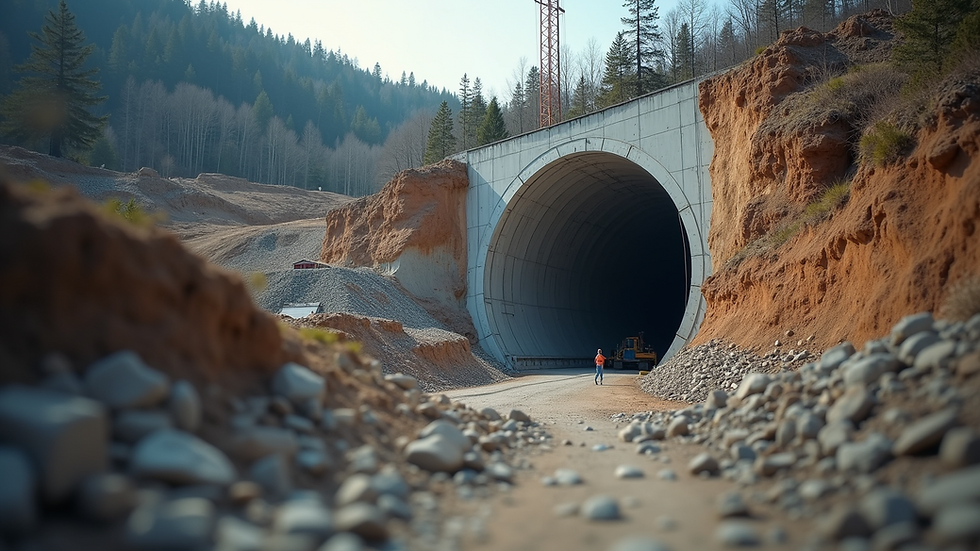Riyadh Launches Major Environmental Inspection Project to Raise Standards
- Michael Ghobrial

- Sep 18, 2025
- 3 min read
Saudi Arabia’s capital has kicked off the search for private partners to deliver a major new environmental inspection project, a move that shows real progress in making the city cleaner and safer. The National Centre for Environmental Compliance (NCEC), with the Ministry of Environment, Water and Agriculture (MEWA) and National Centre for Privatisation and PPP (NCP), has opened the expression-of-interest window for a 10-year contract. The project covers inspections at 25,000 industrial and commercial sites, supporting Riyadh’s wider push for world-class air, water and environmental quality as part of Vision 2030.
Project Overview
Type: Operation and management (O&M) PPP contract, 10 years
Coverage: 25,000 facilities with environmental impact in Riyadh and across Saudi Arabia
Main activities: Site inspections, compliance checks, training teams of skilled inspectors, providing vehicles and equipment, reporting, and data-sharing with the NCEC
Goal: Stronger regulatory enforcement, better public health, and alignment with global best practices

Delivery Partners and Key
Stakeholders
Client/Owner: National Centre for Environmental Compliance (NCEC)
Strategic partners: Ministry of Environment, Water and Agriculture (MEWA), National Centre for Privatisation and PPP (NCP)
Facilities database and tech support: NCEC
Prospective contractors: Environmental consultancies, inspection specialists, and technology firms (Saudi and international)
Local partners: Municipalities and regulatory agencies across the Kingdom
Global standards: Requirements reflect up-to-date international inspection and reporting protocols
The Role of the Mostadam Sustainable Building Program
Introduced by the Ministry of Municipal, Rural Affairs, and Housing, the Mostadam Sustainable Building Program sets a framework to assess and certify green building practices in Saudi Arabia. By 2025, more projects are expected to participate in this certification process, which not only endorses sustainability but also aligns with the broader objectives of Vision 2030.

The program recognizes projects that meet specific standards for environmental design and performance. By incentivizing compliance and sustainability, the Mostadam initiative encourages construction firms to prioritize eco-friendly practices in their project implementations. This shift is forward-thinking and sets a new standard for the industry.
Major Infrastructure Projects Leading the Way
Several high-profile projects are already underway, showcasing the commitment to sustainability within the construction sector. Notable among them are the Eastern Tunnel Project in Jeddah and the Airport Sewage Lifting Project. Both initiatives aim to enhance environmental conditions while providing critical infrastructure that benefits the public.
For instance, the Eastern Tunnel Project focuses on improving waste management systems, thus significantly reducing pollution in the area. By utilizing state-of-the-art technology and following environmental best practices, these projects serve as models for what the future of sustainable construction can look like in Saudi Arabia.

Opportunities and Challenges for Construction Professionals
The evolution of the construction sector in Saudi Arabia opens up a plethora of opportunities for professionals in the industry. With a growing demand for sustainable construction, there is an increasing need for skilled workers who understand green building techniques. Certifications in environmental compliance and sustainable practices will become increasingly valuable, making continuous education essential for industry professionals.
However, the transition to greener practices also presents challenges. Companies must allocate resources to meet compliance requirements, invest in training staff, and adapt to new technologies. The cost of implementing sustainable practices can be high initially, but the long-term benefits, including operational savings and enhanced project reputation, are well worth the investment.
Timeline
EOl launch: September 17, 2025
EOl deadline: October 6, 2025
Evaluation and main partner selection by end of 2025
Full mobilisation and contract start expected early 2026
Strategic Importance
The move is a key step in Saudi's Vision 2030 plan to improve quality of life, environmental sustainability, and public health in fast-growing cities like Riyadh.
The strong PPP approach reflects Saudi Arabia's bet on private expertise and digital innovation to deliver real, measurable progress on the ground.
Raising the standard of environmental compliance not only reduces pollution and risk, but helps attract new investment and is a foundation for sustainable growth.
Writer’s Opinion
This project is a breath of fresh air for Riyadh, literally and figuratively. By giving private firms a big role in environmental inspection, the city is trying something new and bold, but also necessary if it wants to match leading global cities for health and liveability. Success here will come down to smart tech, good management, and a real commitment to outcomes. Firms with experience in digital reporting, big-data analytics, and sustainable infrastructure should be on high alert. This contract could open the door to more green and compliance-focused work all over Saudi Arabia.









